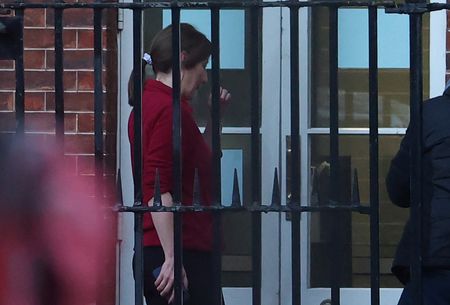By Jakob Van Calster and Mateusz Rabiega
(Reuters) -ABN Amro plans to cut 5,200 full-time jobs by 2028, it said on Tuesday, as the Dutch bank seeks to deliver on its cost-cutting promises and focus on its core businesses.
The reduction, equal to more than a fifth of the lender’s workforce, will affect all business areas, including recently acquired Hauck Aufhäuser Lampe and NIBC Bank, CEO Marguerite Bérard told Reuters.
Shares of ABN Amro opened more than 4% higher following the statement published ahead of its capital markets day.
The group also announced the sale of its personal loan business Alfam to domestic peer Rabobank, and said it would trim its risk-weighted assets in the corporate bank division by 10 billion euros ($11.5 billion) over the next three years.
The sale of Alfam is expected to have a positive effect of 5 basis points on ABN Amro’s Common Equity Tier 1 ratio, a core measure of a bank’s capital strength, despite an expected book loss of around 100 million euros, it said.
As part of its 2028 roadmap, the group targets a return on equity of at least 12% and plans to distribute up to 100% of capital generated to shareholders between 2026 and 2028. The goals also include income exceeding 10 billion euros and a CET1 ratio above 13.75%.
ABN Amro, with a market value of around 16 billion euros, has been one of the top gainers as European banking stocks rallied over the past two years. Driven by high interest rates, which have since eased, and continued strong earnings, euro zone lenders have accumulated substantial capital in a sector ripe for consolidation.
The lender has also been a subject of market speculation as a possible takeover target, as the Dutch state continues to unwind the stake it still holds after its nationalisation during the 2008 financial crisis.
Bérard, who took the top job in early 2025, welcomed the return of the state-held shares to the market, but dismissed takeover speculation. “We are building ABN Amro’s future on its own strength,” she said.
($1 = 0.8684 euros)
(Reporting by Jakob Van Calster in Gdansk, editing by Milla Nissi-Prussak)










